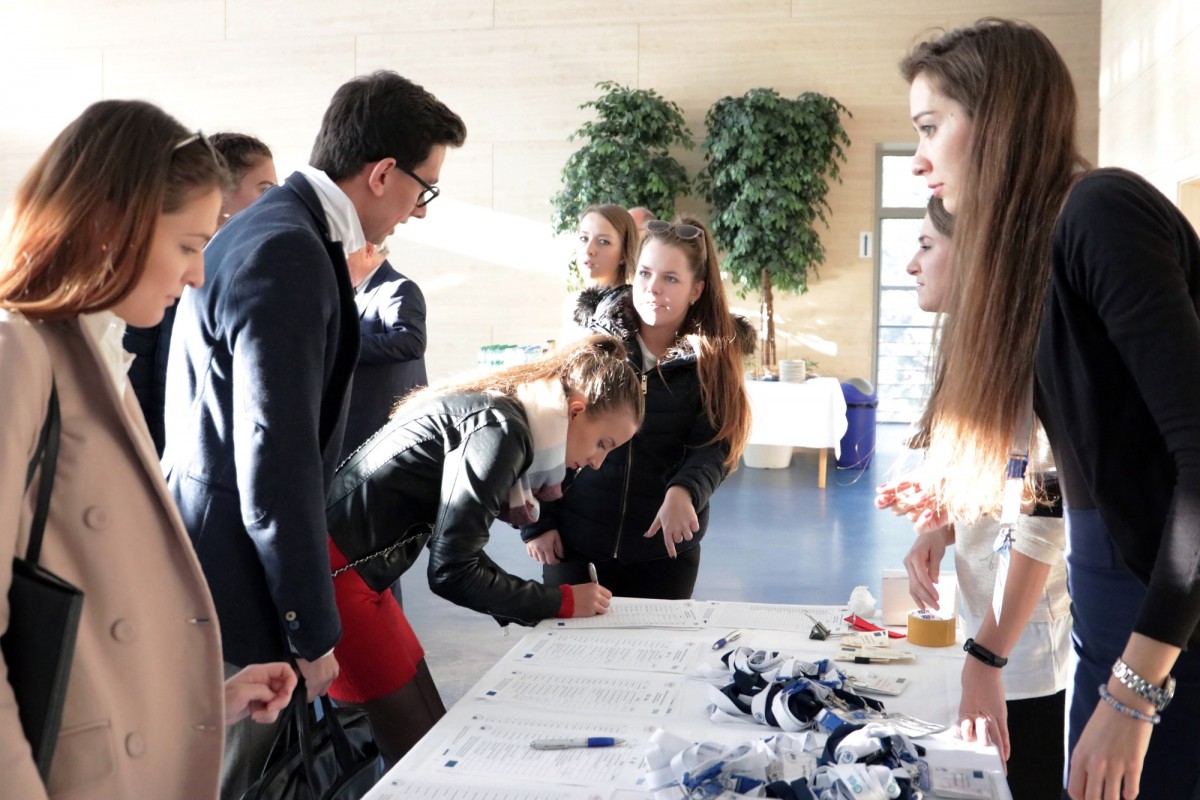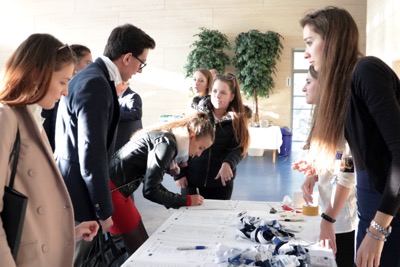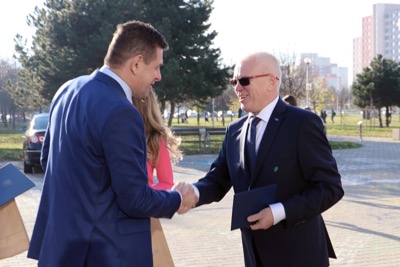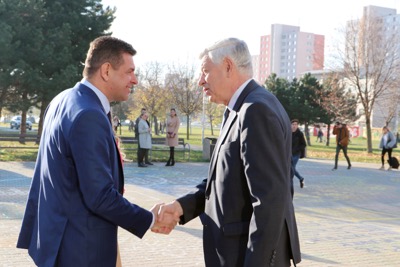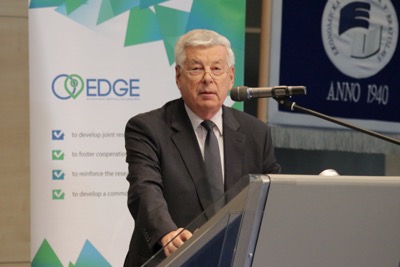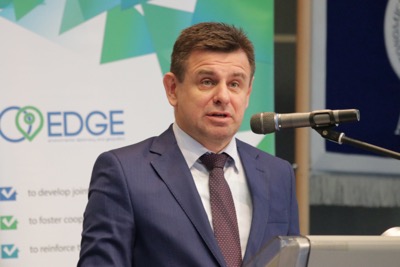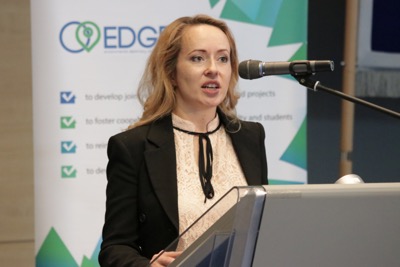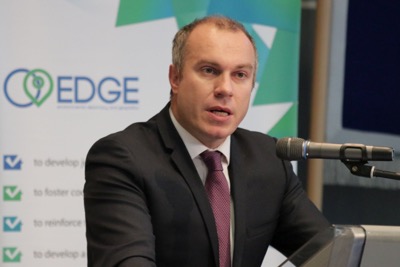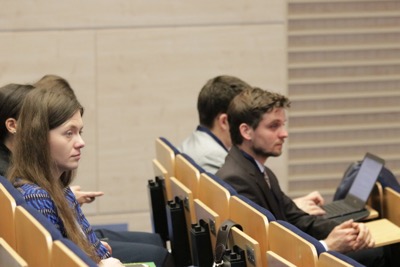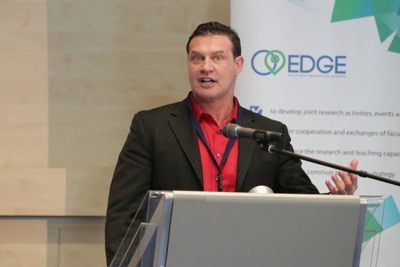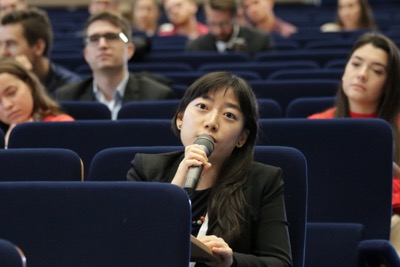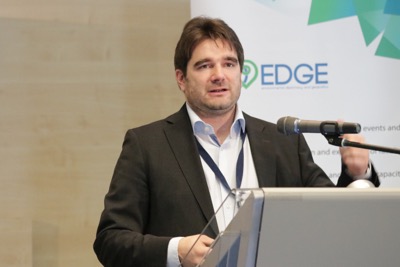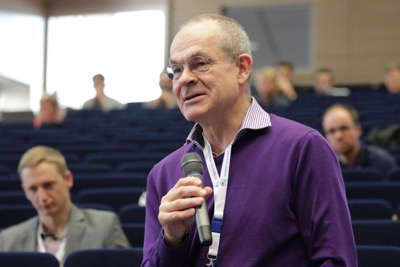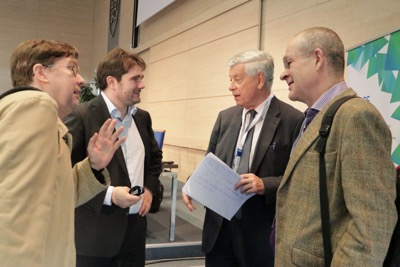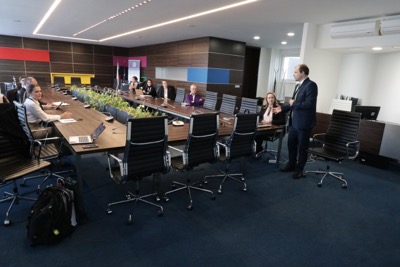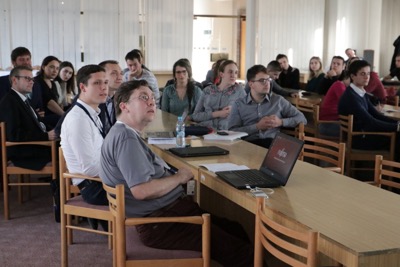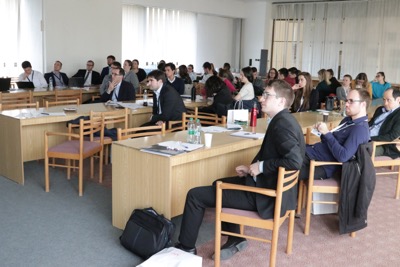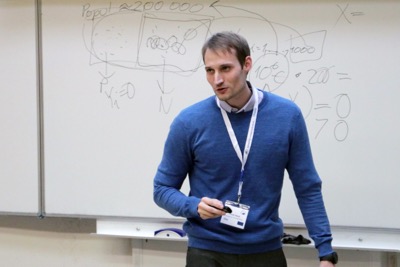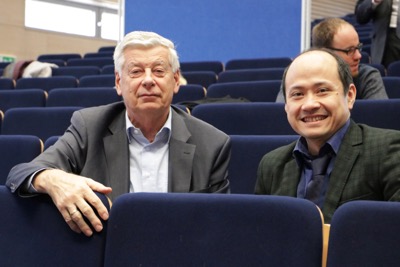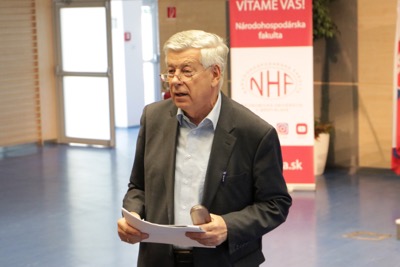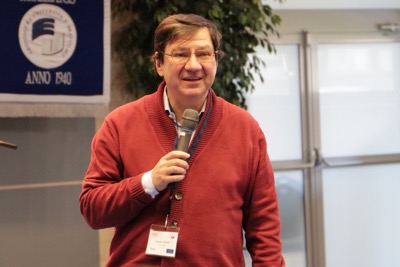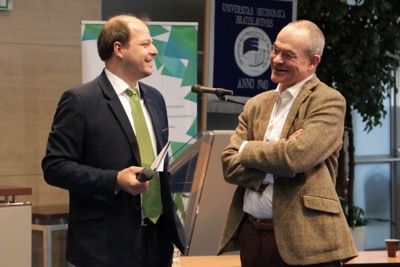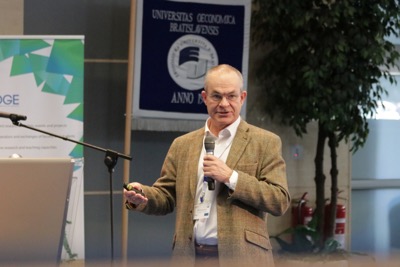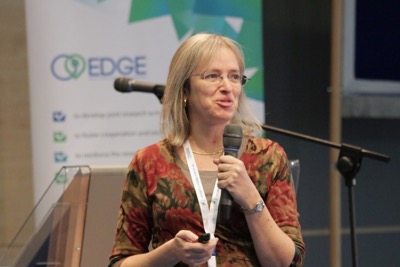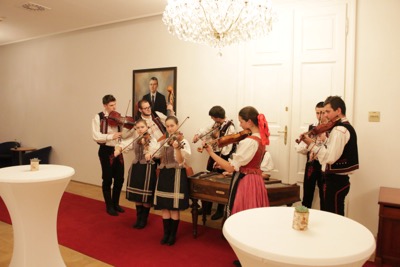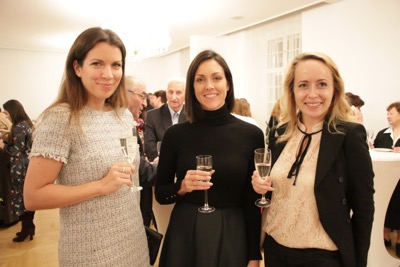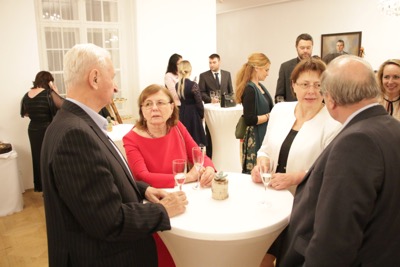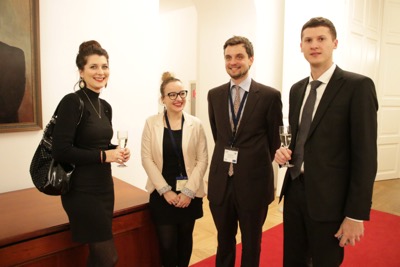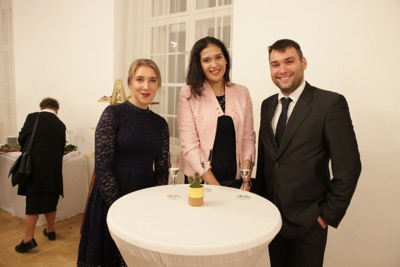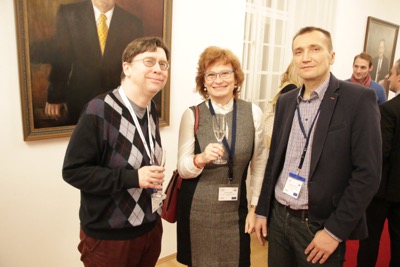On November 15-16, 2018, the University of Economics in Bratislava (EUBA) hosted the international scientific conference “Digitalization and Smart Green (R)evolution” dedicated to the celebration of 65th anniversary of the Faculty of National Economy as well as the successful implementation of the H2020 Twinning project EDGE – Environmental Diplomacy and Geopolitics. The conference brought together more than 200 scholars, practitioners as well as policymakers and was accompanied by the launch of the State of Environmental Migration 2018 – the joint volume of papers published by the University of Liege.
The Minister of Environment Laszlo Solymos in his opening speech praised that the EDGE project “has become a milestone in involving Slovak economic research in key European project consortia”. For the first time, EUBA coordinated a million-euro-scale project and made it a huge success by securing with their project partners another H2020 funding of 3.2 million Euros – MAGYC within the SC6 call for migration governance earlier in 2018.
As Minister Solymos also stressed Slovakia has been moving towards a more active role in the climate change dialogue. As historically the first country in Central Europe, Slovakia hosted the OECD Working Group session dedicated to green economy. The role of Visegrad Group countries in the climate change dialogue appears to be on the rise also according to another keynote speakers Professor Francois Gemenne, the author of the upcoming IPCC Assessment Report 6 who stressed that the COP24 Katowice negotiations took place only two weeks after the conference.
The coordinator of the EDGE project Paula Puskarova followed up saying that it was the project EDGE that “has been playing a crucial role in training of that new generation of environmental diplomats and academic leaders”. The engagement of young EUBA scholars within the COP participating community, their joint work on various papers with partners from Sciences Po and University Liege as well as their affiliation to the Hugo Observatory, the first-of-its-kind research center dedicated to the matters of environmental migration, shows that the EDGE project in fact is going to be present in various forms in the years to come!
